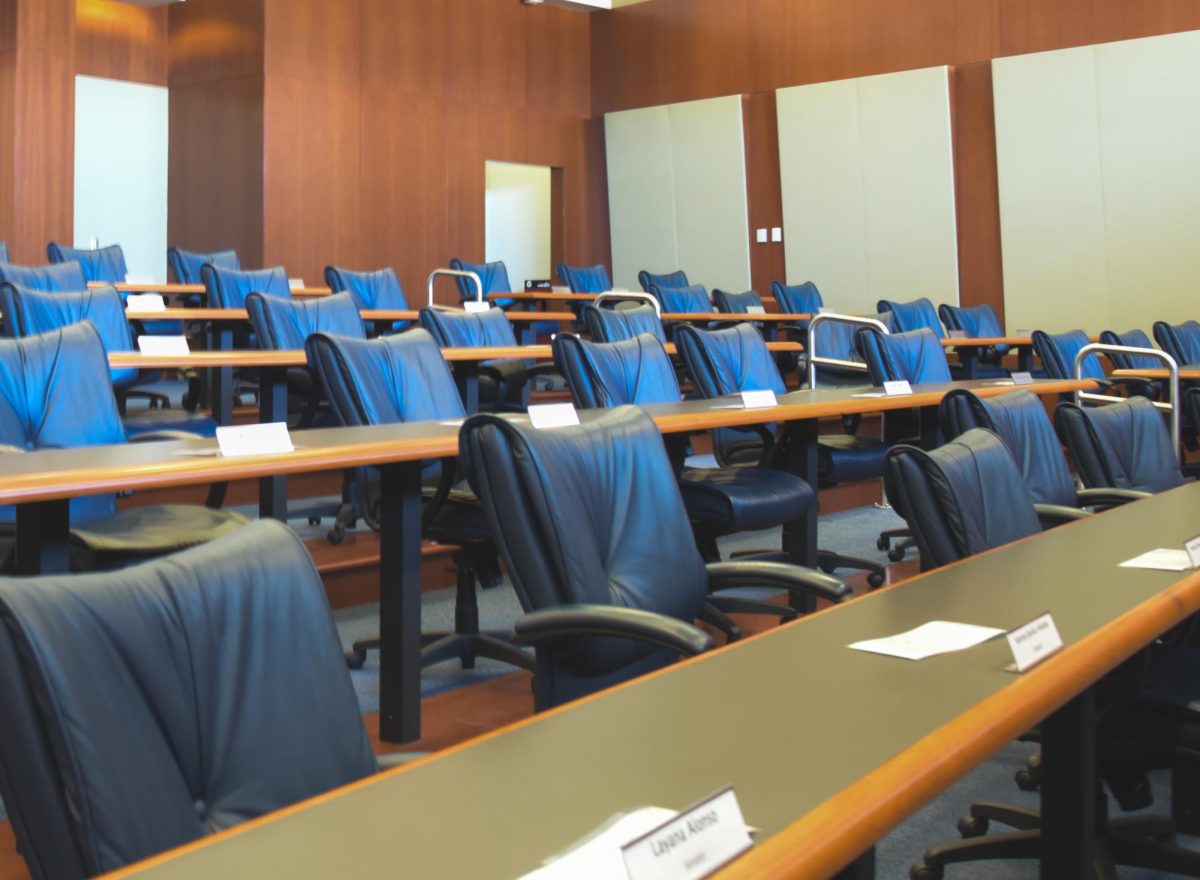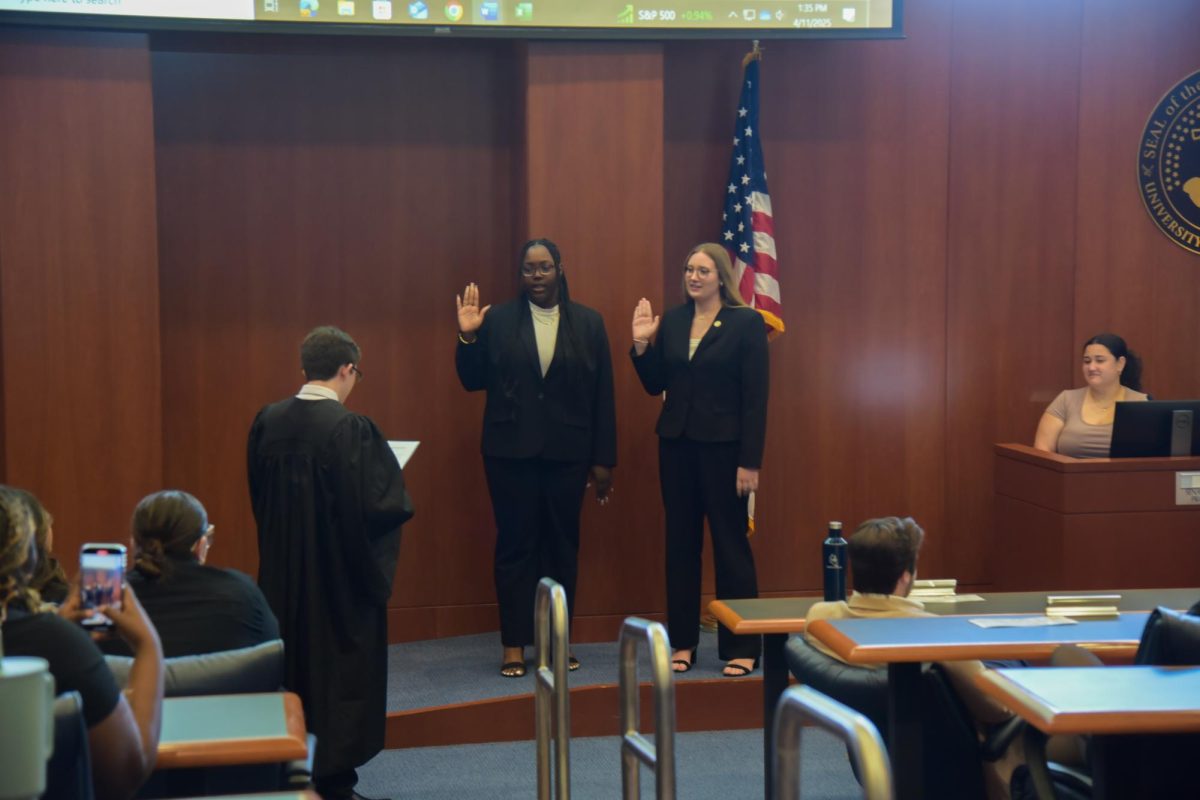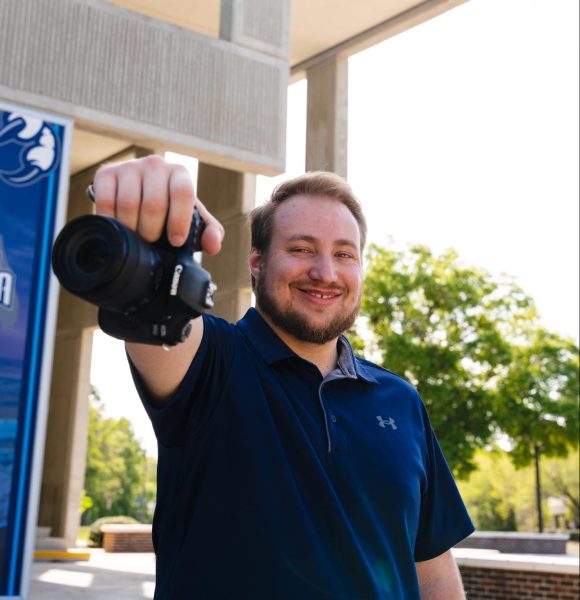[A previous version of this article was published Sept. 4, 2024. The following article was updated to remove a section titled “‘Unanimous approval’ for special requests over $7,000” because the article implied this was a new proposal. However, the language surrounding special requests exceeding $7,000 had already been approved and the only changes that SB-24S-3763 made to this section were format-related. The following article was also updated for clarification and specificity.]
The University of North Florida Student Government Senate has proposed a bill outlining revisions to Title VIII of its constitution. If passed, the most significant change SB-24S-3763 will allow the treasurer to deny or decrease Registered Student Organization tier status for “any reason.”
Also known as the Finance Code, Title VIII regulates the funding for Registered Student Organizations and the applications of the student-body-generated Activity & Service fee revenue.
RSOs are clubs on campus that any student can establish with the help of a faculty sponsor. According to Perch Portal, there are currently 111 RSOs at UNF. RSOs receive funding based on a tier system.
View the full outline of changes below or here.
Treasurer can deny or decrease tier status “for any reason”
RSOs are tracked with a tier system. The proposed changes to Title VIII will rename the White, Gray and Blue tiers to tiers One, Two and Three, respectively (855.2).
According to the proposal, the value of durable goods that tiers One and Two can request will remain the same, but Tier Three could request up to $10,000 of durable goods, an increase from $8,000.
If the proposed revisions are passed, there will no longer be a tier-change form for RSOs requesting more durable goods. Instead, RSOs’ tier status will be based primarily “on the length of time the RSO has been continuously registered along with shown need” (855.2).
Title VIII currently gives the Treasurer authority to “assess minor or major infractions” if needed.
A “major infraction” is an “egregious” violation of the Finance Code relative to the “storage or handling of durable goods, or the accumulation of three (3) minor infractions,” as defined by section 801.26.
Spinnaker spoke to SG B&A Chair Tommy Mazzella to clarify the difference between major and minor infractions. He said “it depends on each case.”
“[A major infraction is] more just like if you have major damage to something purchased with A&S fee funds,” Mazzella said.
Although there are already penalties in place for RSOs that commit “major infractions,” the proposed revisions will institute a new penalty that would prevent higher-level RSOs from moving up tiers if they receive two or more major infractions during the previous fiscal year (855.3). Higher-level RSOs could also face tier demotion if they collect two or more “major infractions.”
If Tier 1 RSOs commit more than two “major infractions” within this timeframe, they will be reviewed by the Treasurer at the end of the next fall registration period. They will also be ineligible to purchase durable goods for the remainder of the year.
In addition to the new penalties for RSOs, the proposed revisions expand the Treasurer’s authority to determine tier status.
“The Treasurer reserves the exclusive right to deny the tier advancement or to decrease the tier of any RSO for any reason, following the end of RSO registration” (855.4).
RSOs can still appeal infractions and denials of tier advancement, but the proposed revisions change these processes.
Appeal process for tier status
If RSOs are denied tier advancement for any reason, they can submit an appeal to the Osprey Involvement Center. The appeal will then be presented to the Club Funding Board at their next meeting.
What SB-24S-3763 would change:
- Appeals for tier advancement will now be heard by the OIC Assistant Director rather than the Director (855.5).
- The Club Funding Board’s decision will be final (855.5).
Appeal process for infractions
RSOs are allowed to submit an appeal to the treasurer for any infraction they receive.
What SB-24S-3763 would change:
- The Club Funding Board will now solely make decisions on infraction appeals rather than the treasurer (855.7).
- The Club Funding Board’s decision on appeals will be final (855.7).
Storage of durable goods
If an RSO has shown “repeated or significant loss of durable goods,” it is subject to a Club Funding Board hearing to determine the duration of their penalty (855.8C).
In the event that an RSO is issued a “major infraction,” it’s up to the treasurer to determine how the RSO can prove the proper storage of its durable goods (855.9).
What SB-24S-3763 would change:
- The Club Funding Board could discuss adjustments to an RSO’s tier status during hearings (855.8C).
- The treasurer can call a hearing at any time (855.8C).
- The Club Funding Board can decide to uphold or dismiss the penalty at hearings.
- The Club Funding Board’s decision will be final (855.8C).
- The treasurer may “at any point” deem an RSO’s storage “inadequate.” The treasurer must inform the RSO of this decision and meet with them “within a month” (855.9).
- If an RSO has not improved its storage by the second meeting, the Club Funding Board will determine its penalties at a hearing. The Club Funding Board’s decision will be final (855.9).
Other proposed changes
Additionally, the proposal made minor language changes about alcohol at A&S fee-sponsored events.
Section 802.8 now clarifies the use of the A&S fee budget for purchases of alcohol at events, according to the proposed revision.
Alcohol is only allowed as long as the “sales, service, purchase, and consumption of alcohol follows the University’s alcohol guidelines,” according to the proposal.
Alcohol still must be purchased and distributed exclusively by third-party vendors for A&S fee-sponsored events and may not be purchased by A&S fees.
The B&A Committee will meet to vote on the proposed revisions on Sept. 6 at noon in the Senate Chambers, Bldg. 58E Suite 3200. The revisions will then still need Senate approval to pass.
The next Senate meeting is Sept. 13 at noon in the Senate Chambers. All SG Senate and Committee meetings are open to the public.
___
For more information or news tips, or if you see an error in this story or have any compliments or concerns, contact editor@unfspinnaker.com.


















